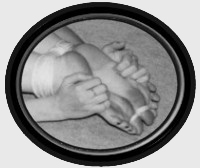FrenzyTickles
TMF Master
- Joined
- Oct 8, 2005
- Messages
- 895
- Points
- 18
Try not to buy plastic, but at least please empty all bottles & don't throw out with lids on.
https://www.yahoo.com/lifestyle/woman-warns-against-dangerous-phenomenon-120000467.html
The Cool Down
Woman warns against the dangerous phenomenon that is ‘trapped water’: ‘I’ve never thought about this’
Jeremiah Budin
November 26, 2023·2 min read
2k
One TikToker recently created a video titled “Free the water!” to inform her viewers about the dangers of “trapped water” and the need to dump out liquids contained in plastic bottles that aren’t going to be used.
“I’m on this quest to dump out any water that gets trapped in plastic,” Kati (@spreadyourdreams) told her followers. “Because once it’s trapped in these plastic bottles, we have now lost it basically forever.”
According to the Texas Water Quality Association, trapped water is indeed a big problem.
“In the US alone, we waste 22 million gallons of water each year in landfills due to trapped water inside plastic water bottles,” the organization wrote on the QWET website. “That is 22 million gallons of water that we will never get back into the Earth’s water cycle.”
The organization went on to point out that fresh water makes up an extremely small fraction of all the water on Earth, and that there is no new water being created — the water that exists on our planet and in the atmosphere is all there is. That means that when we effectively take it out of circulation by trapping it indefinitely in plastic, that decreases the total water supply for all life.
And of course, buying plastic water bottles in the first place is something to be avoided whenever possible.
Around the world, one million plastic bottles are purchased every minute, according to UNEP, with a massive number of them ending up in landfills or the ocean. Plastic is made out of petrochemicals, does not biodegrade, and very slowly breaks down into microplastics which essentially remain in water (and in the humans and animals that drink that water) forever.
Luckily, Kati’s message seems to be spreading. The TikTok video has already been viewed over half a million times, garnering over 2,000 comments, many from people who had never before considered this issue but now pledged to dump out any trapped water they could find.
“This is wild, I’ve never thought about this!” wrote one commenter.
“I love this, you are so right! I never really thought about it and the magnitude of the effect this common practice has long term,” wrote another.
“I use all the extra water at the bottom of the water bottles we drink for my plants!” wrote a third.
Join our free newsletter for easy tips to save more, waste less, and help yourself while helping the planet.
View comments (2k)
https://www.yahoo.com/lifestyle/woman-warns-against-dangerous-phenomenon-120000467.html
The Cool Down
Woman warns against the dangerous phenomenon that is ‘trapped water’: ‘I’ve never thought about this’
Jeremiah Budin
November 26, 2023·2 min read
2k
One TikToker recently created a video titled “Free the water!” to inform her viewers about the dangers of “trapped water” and the need to dump out liquids contained in plastic bottles that aren’t going to be used.
“I’m on this quest to dump out any water that gets trapped in plastic,” Kati (@spreadyourdreams) told her followers. “Because once it’s trapped in these plastic bottles, we have now lost it basically forever.”
According to the Texas Water Quality Association, trapped water is indeed a big problem.
“In the US alone, we waste 22 million gallons of water each year in landfills due to trapped water inside plastic water bottles,” the organization wrote on the QWET website. “That is 22 million gallons of water that we will never get back into the Earth’s water cycle.”
The organization went on to point out that fresh water makes up an extremely small fraction of all the water on Earth, and that there is no new water being created — the water that exists on our planet and in the atmosphere is all there is. That means that when we effectively take it out of circulation by trapping it indefinitely in plastic, that decreases the total water supply for all life.
And of course, buying plastic water bottles in the first place is something to be avoided whenever possible.
Around the world, one million plastic bottles are purchased every minute, according to UNEP, with a massive number of them ending up in landfills or the ocean. Plastic is made out of petrochemicals, does not biodegrade, and very slowly breaks down into microplastics which essentially remain in water (and in the humans and animals that drink that water) forever.
Luckily, Kati’s message seems to be spreading. The TikTok video has already been viewed over half a million times, garnering over 2,000 comments, many from people who had never before considered this issue but now pledged to dump out any trapped water they could find.
“This is wild, I’ve never thought about this!” wrote one commenter.
“I love this, you are so right! I never really thought about it and the magnitude of the effect this common practice has long term,” wrote another.
“I use all the extra water at the bottom of the water bottles we drink for my plants!” wrote a third.
Join our free newsletter for easy tips to save more, waste less, and help yourself while helping the planet.
View comments (2k)












